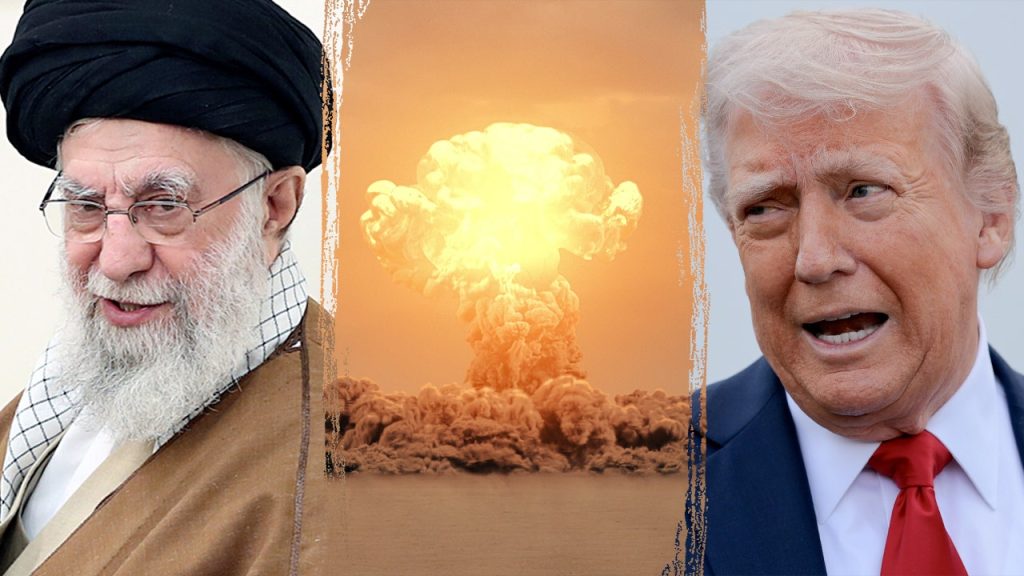On Friday, the United States and Iran resumed nuclear negotiations in Rome, entering a critical phase highlighted by increasing public tensions over demands from both sides. Iranian Supreme Leader Ayatollah Ali Khamenei has publicly criticized U.S. expectations, particularly regarding uranium enrichment, raising doubts about the feasibility of reaching a deal. Iranian officials have characterized the current talks as especially sensitive, emphasizing the urgency of resolving outstanding issues.
| Article Subheadings |
|---|
| 1) Escalating Tensions Over Uranium Enrichment |
| 2) Iranian Official Comments on Negotiation Dynamics |
| 3) Key Points of Contention in Nuclear Negotiations |
| 4) International Response and Implications |
| 5) Future Outlook for Iran-U.S. Relations |
Escalating Tensions Over Uranium Enrichment
During the current round of negotiations, the primary point of contention has been Iran’s uranium enrichment program. The U.S. has reportedly suggested an outright ban on all uranium enrichment activities in Iran, a proposal that the Iranian leadership has vehemently rejected. Supreme Leader Khamenei, speaking on various platforms, has insisted that any restriction on uranium enrichment undermines Iran’s sovereignty and right to develop nuclear energy for civilian purposes. This hardline stance has left many analysts questioning the potential for any meaningful agreement, as the gap between the two nations’ positions appears to be widening.
Iranian Official Comments on Negotiation Dynamics
Iran’s Foreign Minister, Abbas Araqchi, exited the negotiations citing hope for future discussions, while emphasizing the sensitivity of the current talks. In a statement, he outlined the potential for solutions brokered by Oman, although he refrained from detailing the specific points of disagreement. This middle ground indicates Tehran’s willingness to continue dialogue while asserting its position firmly. Araqchi’s remarks, made via social media, underscored the complexity of negotiations where both nations’ definition of “solutions” varies drastically.
Key Points of Contention in Nuclear Negotiations
The negotiations currently hinge on two critical factors: Iran’s uranium enrichment levels and the future scope of its nuclear energy program. The U.S. has expressed a desire for Iran to adhere to a strict policy of zero enrichment, asserting that any level of enrichment poses a significant threat to regional stability. On the other hand, Tehran has insisted that a complete cessation of enrichment is non-negotiable, as it claims this is essential for its energy needs. The situation is complicated further by Iran’s advancements in missile technology, which raises alarms among international observers about the country’s true intentions.
International Response and Implications
The tumultuous negotiations have attracted eyes from across the globe, particularly from U.S. allies in the region. Observers note the potential for escalation should an agreement remain elusive. The European Union, along with other international stakeholders, is closely monitoring the situation, as a breakdown in talks could lead to renewed sanctions or even military actions. Foreign policymakers emphasize the urgent need for diplomatic strategies to de-escalate tensions, underscoring the precarious nature of Iran’s growing missile capabilities.
Future Outlook for Iran-U.S. Relations
The outlook for Iran-U.S. relations feels increasingly precarious. Analysts believe that the existing power dynamics, rooted in both nations’ historical grievances, complicate future cooperation. As Iran continues its enrichment activities, the U.S. is likely to face increasing pressure domestically to take a tougher stance. Various experts advise leveraging diplomatic channels with third-party nations like Oman to achieve an intermediary role. The complexity of this issue suggests that compromises will be necessary from both parties moving forward.
| No. | Key Points |
|---|---|
| 1 | U.S. insists on zero uranium enrichment for Iran to ensure non-proliferation. |
| 2 | Iran asserts its right to enrich uranium for civilian energy needs. |
| 3 | Negotiations described as sensitive, with both parties holding firm on key demands. |
| 4 | Missile technology advancements by Iran raises international alarm and scrutiny. |
| 5 | Future relations contingent on the resolution of negotiation impasses and diplomatic efforts. |
Summary
The ongoing nuclear negotiations between the U.S. and Iran illustrate a complex and sensitive geopolitical landscape. With stark differences in demands, the potential for reaching a comprehensive agreement appears limited. The implications of these discussions extend well beyond bilateral relations, affecting regional and international stability. As both sides continue to navigate thorny issues of uranium enrichment and security concerns, the necessity for diplomatic engagement remains paramount.
Frequently Asked Questions
Question: Why is uranium enrichment a major topic in negotiations?
Uranium enrichment is critical because it determines the extent to which a country can develop nuclear capabilities. Both the U.S. and international observers are concerned that high levels of enrichment could lead Iran toward developing nuclear weapons, which is why it is a focal point in the talks.
Question: What is Iran’s position regarding its nuclear program?
Iran maintains that its nuclear program is for peaceful purposes, primarily aimed at generating energy. It rejects demands for complete uranium enrichment cessation, viewing it as a violation of its right to pursue nuclear technology.
Question: How does international pressure influence the negotiations?
International pressure plays a critical role in shaping the negotiations, as many countries, particularly in the West and the Middle East, are concerned about nuclear proliferation. Sanctions and heightened scrutiny can motivate Iran to engage constructively in discussions or, conversely, push it towards defiance.


